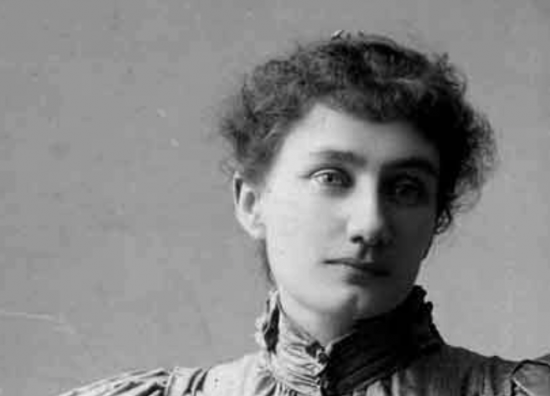 In 1931 the state of Washington named Ella Rhoads Higginson as its first poet laureate. Not its First Woman poet laureate, its first poet laureate, period. Higginson was known throughout the United States for her depictions, both in prose and poetry, of the Pacific Northwest. And yet she received only a minimal obituary in the local paper when she died, and her name was lost to history. This changed in 2014, the day that Professor Laura Laffrado discovered Higginson’s archives in a Western Washington University library.
In 1931 the state of Washington named Ella Rhoads Higginson as its first poet laureate. Not its First Woman poet laureate, its first poet laureate, period. Higginson was known throughout the United States for her depictions, both in prose and poetry, of the Pacific Northwest. And yet she received only a minimal obituary in the local paper when she died, and her name was lost to history. This changed in 2014, the day that Professor Laura Laffrado discovered Higginson’s archives in a Western Washington University library.
Ella Rhoads was born in Kansas, raised in Oregon, and settled with her husband, Russell Higginson, in Bellingham, Washington. She first published a poem when she was 14. Her early poems were published anonymously, as was the case for many women. After she married, she began to write under her own name (actually her husband’s name). She wrote more than 300 poems, published short stories, a novel, a travel book, and a newspaper column. Her novel, Mariella; of Out-West, was compared to Jane Austen, Leo Tolstoy, and Émile Zola. Her travel book, written over four summers spent in Alaska, poetically describes this unknown land, with words like “the mists, light as thistledown and delicately tinted as wild-rose petals.” The rest of the country felt invited to this distant land that was almost foreign to them.
Higginson was also an editor, having learned typesetting and editorial writing at the age of 15, while still living in Oregon. She was an editor for the Portland, OregonWest Shoreliterary magazine and an associate editor of the Pacificmagazine in Seattle.
Higginson, like many First Women, helped other women to succeed. In 1912 she was campaign manager for fellow Bellingham resident Frances C. Axtell when she ran for the Washington State House of Representatives, even though no women had served in the legislature since the state’s founding in 1889. Axtell was elected as was Nena J. Croake from Tacoma, the First two Women to serve in the Washington State Legislature.
Professor Laffredo, the hero who rescued Ella Rhoads Higginson from the dustbins of history, has given her a new life. Not only is her work being studied by Laffredo’s students, her archives are being used as a means to teach a new generation how to do research. One can only hope that this education will lead to the discovery of more women who have been erased from history.
P.S. Thank you to The Seattle Times for writing a superb article about Higginson and Laffrado in their Pacific NW magazine, and for re-writing her obituary to recognize her significance.

